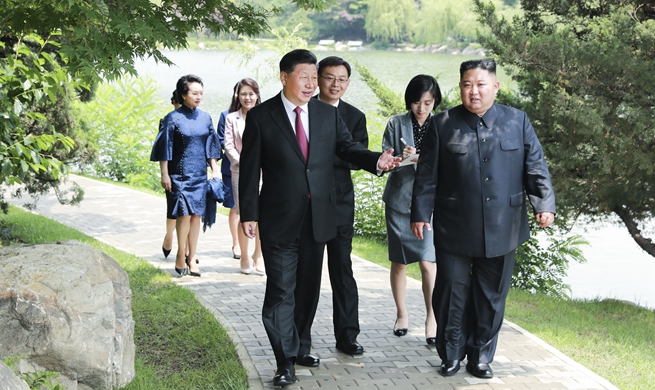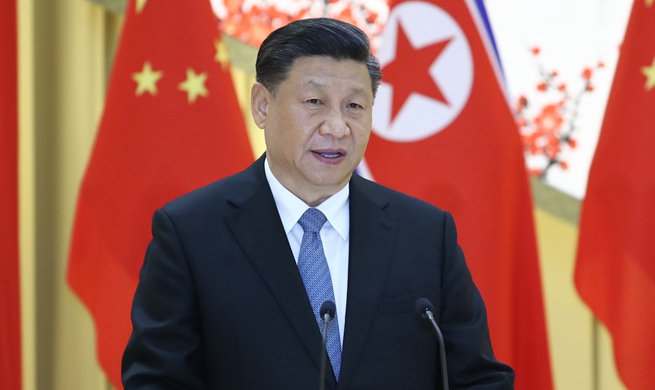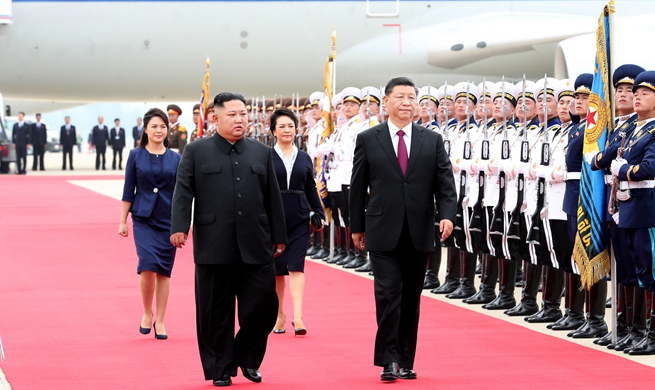BUENOS AIRES, June 21 (Xinhua) -- Chinese consumers' love for foreign food has energized local exports of agricultural products and had a positive impact on the development of Argentina's regional economies, according to an Argentine trade agency.
"China is the main export market for Argentine beef, and regarding chicken and wine, the potential is enormous," said Alejandro Wagner, managing director of international trade at the Argentine Agency for Investment and International Trade (AAICI).
At the start of the year, the AAICI helped small- and medium-sized companies in the southern provinces of Chubut, Rio Negro and Neuquen export 160 tons of cherries to China for the first time.
The cherries -- shipped partly by sea and partly by air -- marked a significant development for the local economies and for bilateral economic cooperation.
"It was a very important milestone because we are working with China in a more comprehensive way, and it is also a demonstration of good cooperation between the private and public sectors," Wagner said, appreciating the prompt green light given by China.
Argentina has signed at least 12 protocols with China in agriculture to increase exports of chilled or frozen beef, lamb, pork and goat meat, as well as fruit like grapes, cherries, blueberries and honey, according to the Agro-industry Secretariat.
Last year, soybean oil and mandarin exports to China resumed, and the two countries reached a "historic agreement" that allowed Argentina to export beef to the Asian country, according to Wagner.
"For an Argentine producer, being able to export something is always an arduous and long-term effort. And in the case of China, the complexity is even greater given the physical distance, logistical issues and cultural differences," Wagner said.
But the effort is paid off, he said.
Argentina exports some 18 million U.S. dollars' worth of cherries to more than 20 countries and regions, of which China has the potential to become the top consumer market due to growing domestic demand.
"China has a growing middle class with greater purchasing power, which values imported products, especially food, and highly values what it consumes. And Argentina happens to be a net producer of quality food," Wagner said.
The trade agreements, which are still under negotiation, will also help buoy Argentina's agriculture and food industries, Wagner told Xinhua.
"I believe the outlook is very positive for trade ties between China and Argentina," said Wagner. "There are infinite possibilities for larger food exports ... The potential is enormous."
AAICI's plan is to continue expanding exports while promoting other Argentine products which Chinese consumers might not be familiar with.
According to the agency, Argentina exports 4.5 billion U.S. dollars in goods to China each year, making the Asian giant its second largest trading partner, after Brazil.

















